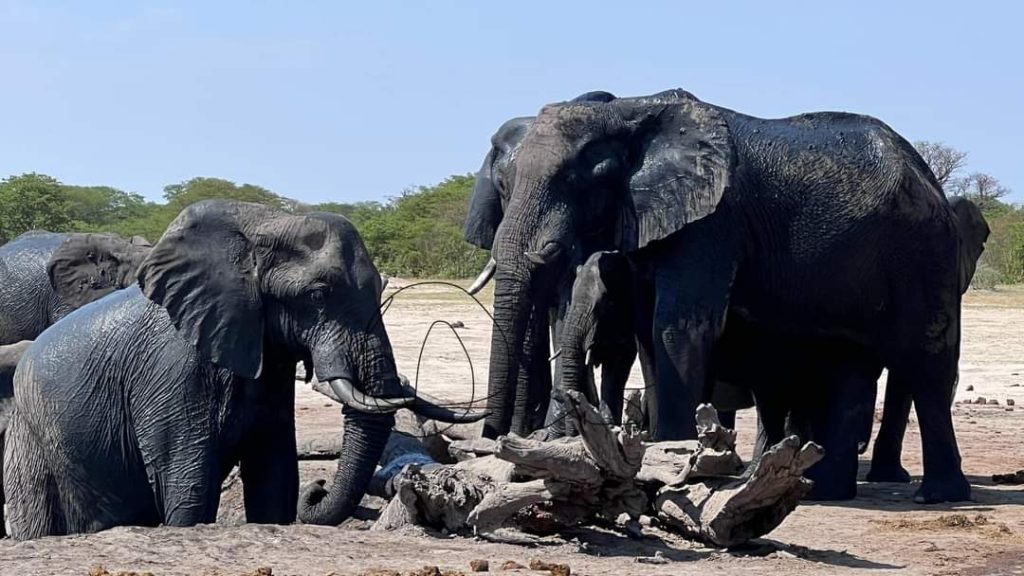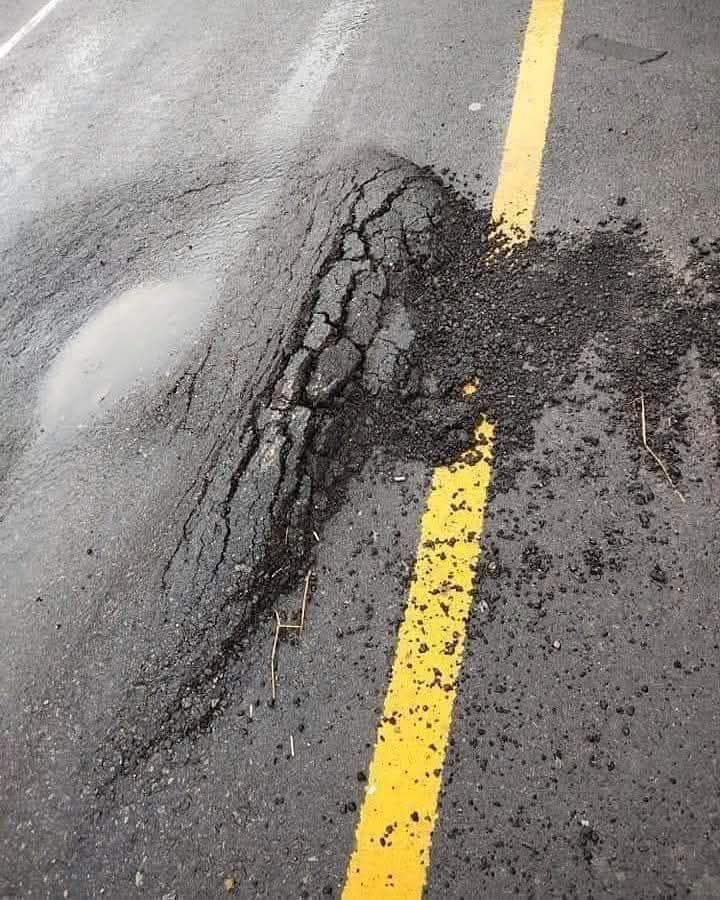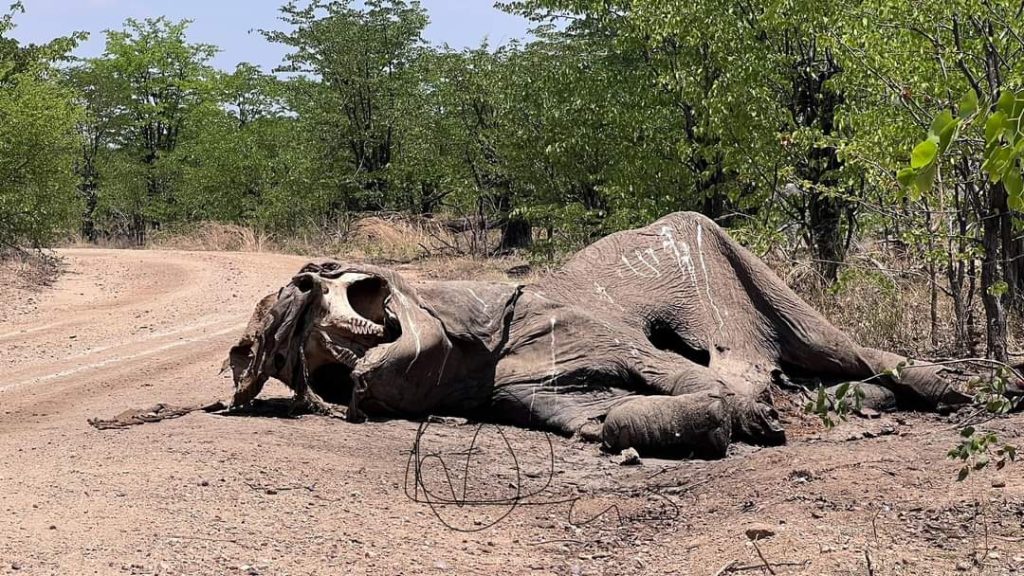DT Correspondent
Hwange National Park, Zimbabwe – The International Fund for Animal Welfare (IFAW) has issued a warning regarding a mounting crisis in Zimbabwe, as close to a dozen elephants have fallen victim to extreme temperatures in Hwange National Park.
The El Niño weather pattern has triggered scorching hot weather conditions, resulting in the drying up of drinking pans and exposing wildlife, particularly elephants, to severe water shortages.
The latest report from IFAW reveals that elephants and other wildlife in Zimbabwe are succumbing to the dire consequences of an extended dry season.
The once abundant water holes have been reduced to mere muddy puddles due to the delayed arrival of summer rains, caused by the ongoing El Niño phenomenon.
Hwange National Park, the country’s largest protected area and home to approximately 45,000 elephants, has already witnessed the deaths of dozens of jumbos.

Disturbingly, the toll may rise as at least 100 elephants have already been reported dead as a result of water scarcity.
“If the rains don’t come soon, elephants and other wildlife species will face a crisis,” warns Phillip Kuvawoga, the Landscape Programme Director of IFAW.
He highlights that this recurring phenomenon has previously led to over 200 elephant deaths in Zimbabwe in 2019 during a severe drought.
Despite the presence of 104 solar-powered boreholes, park authorities assert that these measures are insufficient to counterbalance the extreme temperatures that are rapidly drying up existing waterholes.
Consequently, wildlife is compelled to embark on long journeys in search of food and water, with water-dependent mammals like elephants bearing the brunt of the adverse conditions.
This distressing news emerges amidst COP28, where global leaders have convened to address climate change and determine ambitious goals and responsibilities.
IFAW’s agenda at the conference advocates for wildlife conservation as a nature-based solution to combat climate change.
Kuvawoga emphasizes that wild animals play a crucial role in safeguarding the carbon already stored in nature, preventing its release into the atmosphere, and facilitating further carbon absorption and storage.
The devastating impact of climate change on both wildlife and humans necessitates an integrated and holistic approach to support climate-resilient landscapes and communities.
The tragic deaths of elephants and other species in Zimbabwe serve as harrowing reminders of the profound and multifaceted challenges affecting the region’s conservation of natural resources, which are further exacerbated by climate change.
Picture CREDIT @Privilege Musvanhiri





